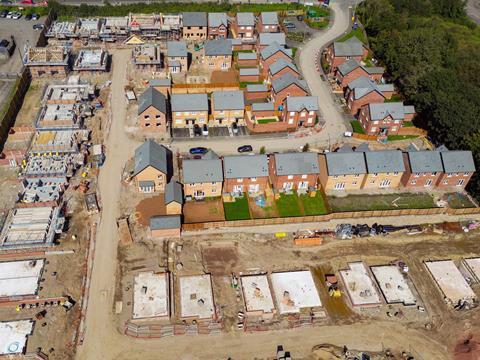Membership body’s latest UK Housing Review examines opportunities and risks in the government’s housing agenda
The government is likely to fall 25% short of its target to build 1.5 million new homes by the end of this parliament, the Chartered Institute of Housing (CIH) has said.

In the membership body’s latest UK Housing Review, published ahead of the government’s Autumn Budget announcement, CIH senior policy adviser John Perry said that “construction industry capacity, even with government measures to improve it, will likely prevent output reaching 1.5 million in any event.”
This analysis is based on factors such as financial constraints and planning delays as well as recent housebuilding projections.
This includes property website Savills’ forecast of the completion of 1.2 million homes by 2029, but only with extra incentives for first-time buyers and more funding for social landlords. Without these, it predicts total output would only reach 840,000.
Despite the £39bn Social and Affordable Homes Programme announced in the June Spending Review and the creation of the National Housing Bank, Perry said insufficient funds due to investment in existing stock to meet higher safety and quality standards and social landlord opposition to developer contributions will hinder social housebuilding.
He predicted that the social sector might hit around 70,000 homes annually for the next three years, describing it as a “welcome improvement but insufficient to fill the gap created by the private sector’s slow recovery”.
The UK Housing Review, which is the sixteenth in the series, consists of several articles written by contributors from across the sector.
In one, Hakeem Osinaike, executive director of housing at Southwark Council warned that “unsustainably increasing financial pressures threaten the long-term viability of council housing.”
He said rising costs, policy restrictions and low rent increases have left many councils forecasting Housing Revenue Account deficits, forcing them to scale back on maintenance and development plans.
He described the government proposal to reintroduce rent convergence as a “crucial intervention to unlock investment needed to meet new standards and address the housing crisis.”
Beyond finance, the briefing also explored planning reform, land value capture, homeownership prospects for first-time buyers, private rented sector regulation, retrofit and net zero delivery, leasehold and commonhold reform, and housing and health inequalities throughout the UK.











No comments yet